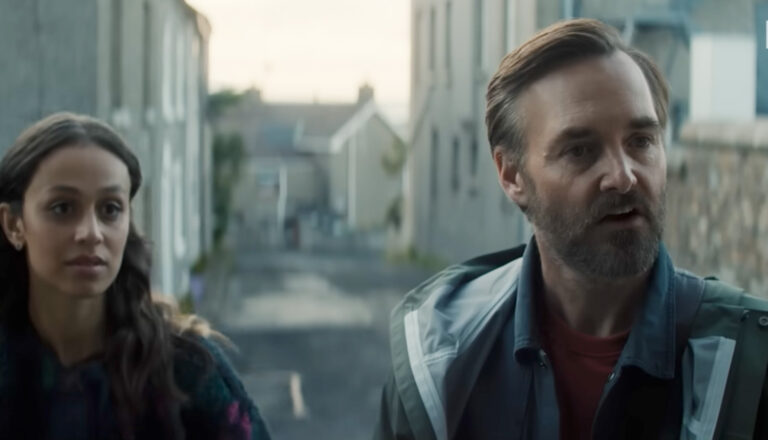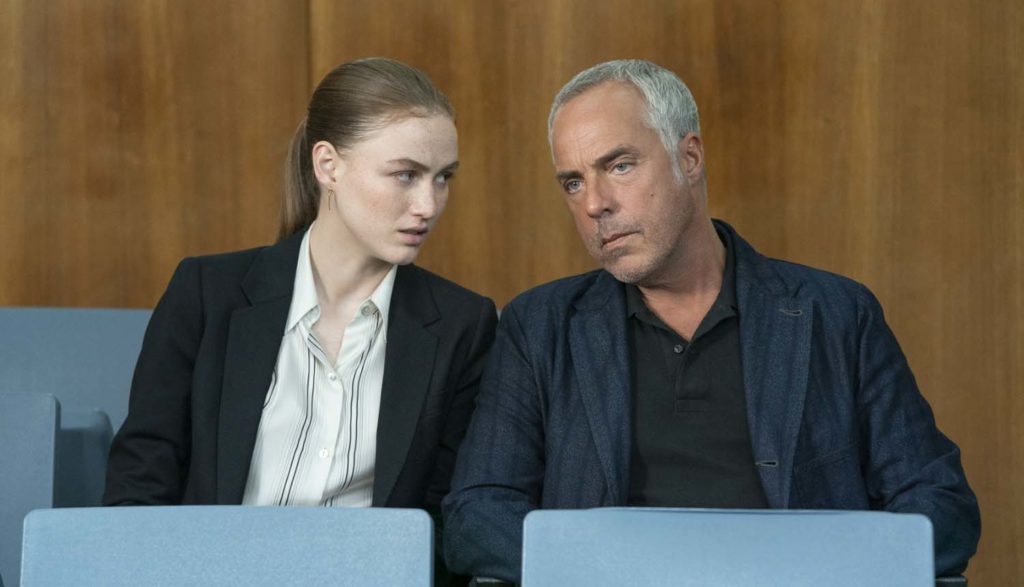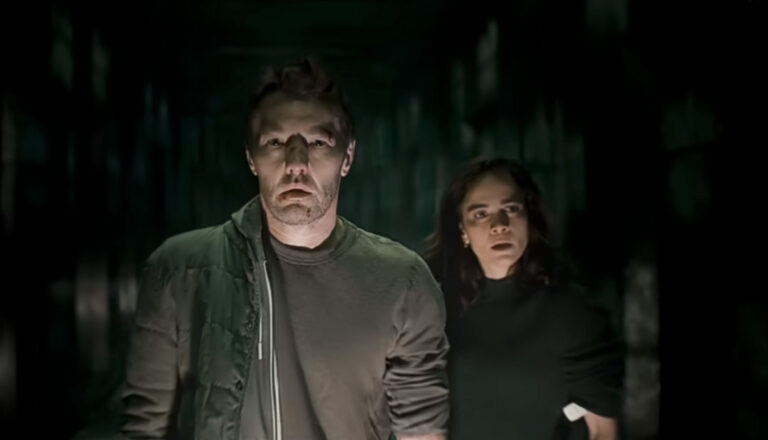
Bodkin
Ireland is frequently listed as one of the safest countries in the world. But the same cannot be said for the Irish Bodkin.

For 26 years, Det. Hieronymus “Harry” Bosch patrolled L.A.’s toughest streets with a gun, badge and attitude. He worked homicide then, and he always kept pictures of three unidentified murder victims at his desk.
It’s a somber reminder, Bosch told his daughter once. “Everybody counts or nobody counts.”
He didn’t know then, but he was counting down his last days working for the L.A.P.D.
He’s moved on now—into the grimy world of private investigating. And even though he’s more liable to dig up dirt on a cheating spouse than cuff a guy for murder, he still keeps those three pictures nearby. Once a cop, always a cop, even without the badge. And his new job is just as dangerous as the old one.
‘Course, Harry Bosch is pretty dangerous, too. The criminals know it. Some of his former coworkers know it. He’s liable to do most anything to bring justice to nefarious lawbreakers—even if he has to snap a few rules of his own. He might not carry a badge anymore, but that just gives him more freedom.
Take the case of Carl Rogers, a wealthy investor who hired a hit man to bump off civil rights attorney (and one of Bosch’s biggest frienemies) Honey Chandler and Boschs’s very own daughter, Maddie. The hitman’s slugs nearly claimed Honey’s life. And while Maddie escaped unscathed, that still doesn’t make Bosch feel any better. The hitman got his terminal comeuppance, but Rogers escaped the legal system scot-free.
“Courts. Justice system. Due process,” Bosch sneers. Sometimes, it’s not enough. He swears to Honey that they’ll get this guy yet. But this time, “We’ll do it my way.”
But that little bit of personal vengeance isn’t the only job on Bosch’s plate. Another moneyed magnate, the aged Whitney Vance, wants Bosch to find an old flame from long, long ago. He believes his former lover just might have given birth to his child. Since he’s otherwise childless, he’d sure like to will his billion-dollar empire to his illegitimate progeny, if such a son or daughter exists.
Simple enough for Bosch to track down, right? Well, maybe. But given that plenty of others would like to get their hands on Vance’s fortune, it just might be dead simple.
Oh, and Bosch still needs to keep an eye on Maddie too. His daughter has joined the police force herself now, trying to prove her worth. But being the daughter of Harry Bosch is proving to be both a blessing and a curse.
Prime Video’s original show Bosch, inspired by a series of novels by Michael Connelly, was one of the streaming service’s most popular shows during its seven-season run. Beginning in 2014, the character (embodied by Titus Welliver) caught bad guys, bent the rules and did his best to keep his tiny nucleus of family and friends alive. But by 2021, it seemed the character had had enough. He retired from the police force and walked off into the L.A. sunset.
But the world of entertainment loves nothing more than success. No sooner had the character turned in his badge than he was brought back by Prime’s ad-supported offshoot, Amazon Freevee. (The new series is still available on Prime, as well.) This time it draws its inspiration from Connelly’s 19th Bosch-centric novel, The Wrong Side of Goodbye.
And what do we get? More of the same: A pretty standard (if above-average) cop show that sets itself apart by its grim protagonist, gritty environs and… well, its swearing and violence. Bosch contains more harsh profanities than Bosch’s gun has bullets—and all of them are certain to hit their mark: Your brain.
As compelling as the cases might be, and as charismatic as Welliver’s Bosch is, these rough streets will be too rough for many viewers, let alone young viewers.
Harry Bosch is settling into his work as a private investigator—work that sometimes asks him to twist the rules he swore, for 26 years, to protect. He only takes certain jobs, though, and he nearly turns down one from the billionaire Vance Whitney. But when Whitney offers to pay Bosch $10,000 just to meet with him, the private eye agrees—and then agrees to try to find a lover from Whitney’s past. Meanwhile, Bosch’s daughter, Maddie, is trying to become a cop—just like her dad was for so many years. But her time as a trainee is coming with plenty of bumps.
Maddie breaks protocol by abandoning her partner to chase down a criminal. She tackles and arrests the bad guy, but she’s written up anyway. Later, Maddie and her new partner/supervisor fight with another pair of suspects. People hit and kick, and a woman jumps on Maddie’s back. Maddie and her partner eventually cuff the culprits, but Maddie suffers a black eye in the process.
When an earthquake strikes L.A., Bosch’s house is damaged and condemned. The officer who puts the notice on the property warns Bosch not to remove the condemnation notification: Bosch, of course, does, and he lives illegally in the house for a few more days. He breaks into someone’s house to crack a safe and “steal” some keepsakes therein (though he’s simply returning them to the rightful owner).
Someone’s stabbed several times in the street and, we hear, ultimately dies. A suspect confesses, but the man’s attorney asks if her defendant has substance abuse issues. “Probably,” she’s told. People drink beer and wine.
Vance discusses his decades-old affair with a woman who, because of her Mexican heritage, wasn’t acceptable to Vance’s wealthy-but-racist father. We learn that the woman committed suicide shortly after Vance broke off the relationship, but Bosch believes she might’ve had Vance’s baby before killing herself. We hear about how a female officer isn’t amenable to the passes made by a fellow male cop, as she “plays for the other team.”
Characters say both the f- and s-word several times. They use other colorful language, too, including “d–n,” “h—” and several misuses of God’s name.


Paul Asay has been part of the Plugged In staff since 2007, watching and reviewing roughly 15 quintillion movies and television shows. He’s written for a number of other publications, too, including Time, The Washington Post and Christianity Today. The author of several books, Paul loves to find spirituality in unexpected places, including popular entertainment, and he loves all things superhero. His vices include James Bond films, Mountain Dew and terrible B-grade movies. He’s married, has two children and a neurotic dog, runs marathons on occasion and hopes to someday own his own tuxedo. Feel free to follow him on Twitter @AsayPaul.

Ireland is frequently listed as one of the safest countries in the world. But the same cannot be said for the Irish Bodkin.

Dark Matter reminds us that our choices define us. They make us who they are. But this show makes some poor choices itself.

Take the veil off this Hulu show, and you’ll find more than just a compelling story: You’ll uncover scads of problematic content.

Bon Namihira travels into the past to save innocent lives. But potential viewers won’t travel far before they encounter the show’s violence and profanity.